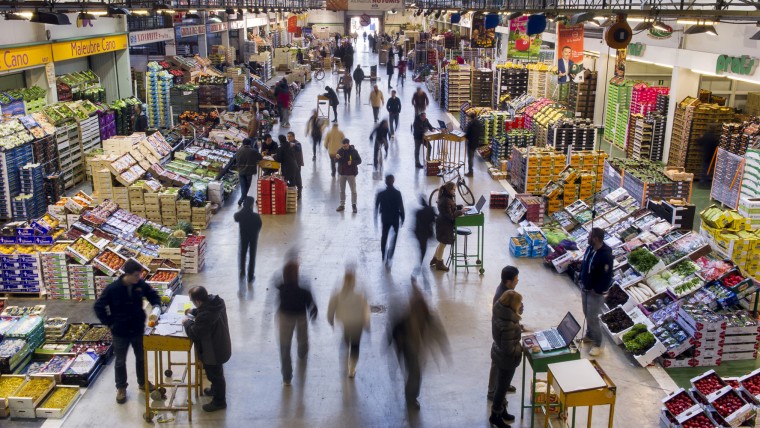A food-harnessing centre at Mercabarna
Foodback, with its 900 square metres of floor space, aims to multiply food harnessing at the Mercabarna wholesale market by 2.5 over the next five years. The centre selects surplus vegetables from wholesale companies at the main market and gives them a second life. Once selected, produce which can be used for human consumption is distributed to social organisations all around Catalonia.
The new facility came into operation on 1 February and is a pioneering, innovative and ambitious project for the circular bioeconomy. The project has a major social and environmental impact, with the following goals:
- Reducing organic vegetable waste.
- Involving companies at Mercabarna in the collective fight against food waste.
- Guaranteeing the traceability and management of surplus produce and food safety.
- Professionalising selection, based on criteria established by the UPC Chair-Mercabarna, and promoting labour insertion.
- Guaranteeing the distribution of produce regained for people in vulnerable situations, through social organisations.
- Contributing to the sustainable development goals in the 2030 Agenda.
Alliances and support from multiple organisations and institutions
Foodback is the result of combined public and private efforts, based on the alliance with Formació i Treball, which will be helping facilitate labour insertion for people in vulnerable situations to carry out the task of selection, while the Banc dels Aliments will be coordinating the food distribution. The project also works with Càritas, the Creu Roja and the municipal programme Alimenta.
The project is also backed by the Fundació “la Caixa”, the Ministry for Climate Action, Food and Rural Agenda at the Government of Catalonia and Assocome, the Associació d’Empreses Majoristes de Mercabarna.
Strategy to guarantee sustainable food
This initiative is just one of the actions resulting from a study commissioned by Mercabarna in 2015 to the Universitat Autònoma de Barcelona, the company Spora Synergies and the Plataforma Aprofitem els Aliments. One of the initiatives was to relocate the food bank, the Banc dels Aliments, at a new space which has enabled it to double its floor area. You can find other actions in this report.
The fight against food waste also forms part of the Barcelona Sustainable Food Strategy 2030, a municipal roadmap document approved in January to guide food policies over the next twenty years. The strategy is a tool for tackling the climate emergency and providing continuity for the activities and projects developed last year, when the city was the world sustainable food capital. You can find other municipal initiatives in this sphere here.

Tags associated with the news item
Related news
-
 Commerce and markets
Commerce and markets
Commerce and markets
Commerce and marketsExpansion to Mercabarna to strengthen Barcelona’s food system
25/10/2021 16:13 h


